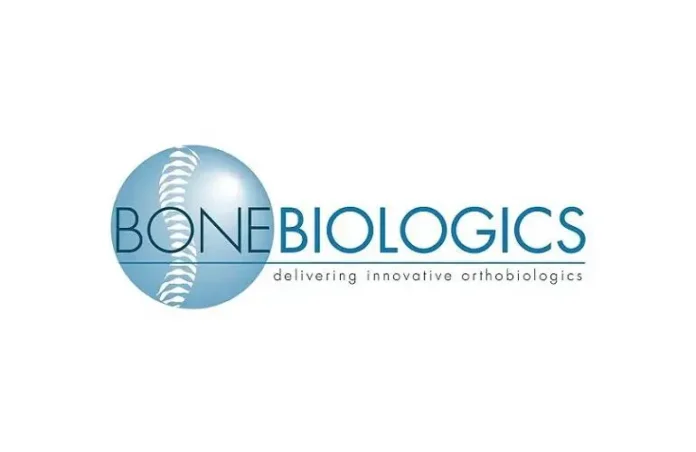BURLINGTON, Mass.– Bone Biologics Corporation (Nasdaq: BBLG, BBLGW), a developer of orthobiologic products for spine fusion markets, announces that the first two patients have been treated in the multicenter, prospective, randomized pilot clinical study of the Company’s NB1 bone graft device. NB1 is NELL-1 protein combined with demineralized bone matrix (DBM) to provide rapid, specific and guided control over bone regeneration.
This pilot clinical study will evaluate NB1 in 30 adult subjects who undergo transforaminal lumbar interbody fusion (TLIF) to treat degenerative disc disease (DDD) and will evaluate safety and effectiveness, fusion success, pain, function improvement and adverse events. To be enrolled in the study, patients must have DDD at one level from L2-S1 and may also have up to Grade 1 spondylolisthesis or Grade 1 retrolisthesis at the involved level. These two patients were treated in Australia. The study design was previously reviewed and agreed upon by the U.S. Food and Drug Administration’s Division of Orthopedic Devices in a Pre-submission to support progression to a pivotal clinical trial in the United States.
“We have worked diligently to prepare for this important milestone and are delighted that the first patients have been treated in our pilot clinical study,” said Jeffrey Frelick, president and chief executive officer of Bone Biologics. “Preclinical animal studies demonstrated a strong safety profile, fusion success and bone healing of NB1, and we are optimistic that we will show fusion success in humans.
“There is clear need for a product that creates rapid, controlled and guided bone growth only in the presence of existing bone and not elsewhere in the body. We aim to demonstrate that NB1 will address this opportunity and compete in the $3 billion annual global market for spine fusion products,” he added.
Lumbar DDD is one of the most common causes of low back pain. DDD also leads to substantial disability, with many patients suffering from decreased ability to walk, sit, stand and/or sleep. For some people, DDD is part of the natural process of growing older and is a significant medical issue that is increasing as the global population ages.


